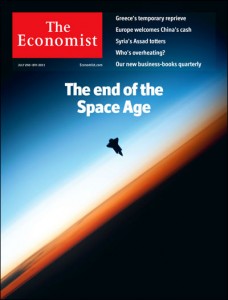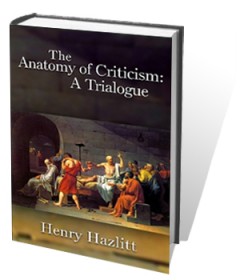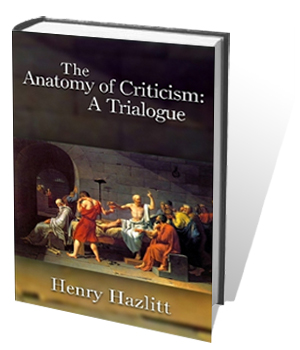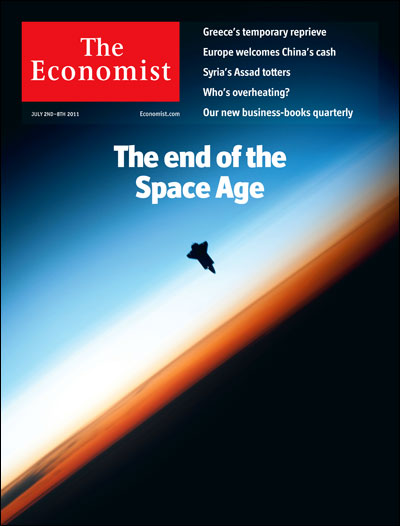- From Mike P. over at The Emptiness comes “Socialism: A love story — Star Trek,” in which he discusses his love affair with Star Trek and how realizing it’s a utopian socialist fantasy actually makes the show more enjoyable.
- From SF Signal comes news that the Hugo Award–winning Encyclopedia of Science Fiction, edited by John Clute and Peter Nicholls, is receiving a long-awaited update to its third edition (the last, second, edition was published in 1993) and — wait for it — is being made available for free online. Why? Oh, I don’t know, maybe reading through the encyclopedia will tempt people into buying more books and ebooks of and about the stories and authors described within it. And simply keeping the history of the genre alive and readily accessible to future generations is a worthy endeavor in itself, of course.
From the press release:The third edition of the Encyclopedia of Science Fiction, the definitive reference work in the field, will be released online later this year by the newly-formed ESF, Ltd, in association with Victor Gollancz, the SF & Fantasy imprint of the Orion Publishing Group, whose support will enable the text to be available free to all users. This initial “beta” version, containing about three-quarters of the total projected content, will be unveiled in conjunction with Gollancz’s celebrations of its 50th anniversary as a science fiction publisher.
[continue reading…]
Non-Fiction
NEWS ROUNDUP | Trek Socialism, SF Encyclopedia Online, Innovations in Publishing
in News, Prose, Science Fiction, Technology, TV
Help Promote Prometheus Unbound by Sharing this Post

So announces the cover of the July 2nd – 8th issue of the Economist.
I’m not privy to what angle the article or articles will take, but I presume the cover is referring to the retirement of NASA’s space shuttle program without a government replacement. But why need that mean the end of the space age?
Help Promote Prometheus Unbound by Sharing this Post
NEWS ROUNDUP | Douglas Adams vs. Ayn Rand, Digital Publishing, Tablets & Ereaders
in IP, News, Prose, Science Fiction, Technology
- Brian Defferding (?) over at Practical Praxeology tells us “Why The Hitchhiker’s Guide to the Galaxy is Better Atheist Libertarian Literature than Any Ayn Rand Book.” Do you agree?
- Digital publishing, tablets, ereaders, and the changing genre publishing landscape:
- Wired – Epicenter: “Digital Book Publishing Models to the Rescue.” A few of the interesting business models that are emerging, including J.K. Rowling’s for the ebooks of the Potter series.
- Wired – Epicenter: “Are Tablets Killing E-Readers? Um, No….”
- Adventures in Scifi Publishing podcast #124: Fascinating interview with multi-genre author Kristine Kathryn Rusch about how digital publishing is changing the genre publishing landscape and stirring up controversy: outdated accounting practices, publisher undercounting of ebook sales, shady new agent practices (including one mentioned in the first Wired article above) and whether you even need or should get an agent now, publishing and agent contracts, foreign rights, ebook rights, IP lawyers, and so on. If this podcast episode piques your interest, be sure to check out Kris’s Business Rusch series of blogposts for more on these topics.
Help Promote Prometheus Unbound by Sharing this Post

 Remembered mostly for his contributions to economics, including his pithy and still-timely classic Economics in One Lesson (1946), Henry Hazlitt was a man who wore many hats. He was a public intellectual and the author or editor of some twenty-eight books, one of which was a novel, The Great Idea (1961) — published in Britain and later republished in the United States as Time Will Run Back (1966) — and another of which, The Anatomy of Criticism (1933), was a trialogue on literary criticism. (Hazlitt’s book came out twenty-four years before Northrop Frye published a book of criticism under the same title.) Great-great nephew to British essayist William Hazlitt, the boy Henry wanted to become like the eminent pragmatist and philosopher-psychologist William James, who was known for his charming turns of phrase and literary sparkle. Relative poverty would prevent Hazlitt’s becoming the next James. But the man Hazlitt forged his own path, one that established his reputation as an influential man of letters.
Remembered mostly for his contributions to economics, including his pithy and still-timely classic Economics in One Lesson (1946), Henry Hazlitt was a man who wore many hats. He was a public intellectual and the author or editor of some twenty-eight books, one of which was a novel, The Great Idea (1961) — published in Britain and later republished in the United States as Time Will Run Back (1966) — and another of which, The Anatomy of Criticism (1933), was a trialogue on literary criticism. (Hazlitt’s book came out twenty-four years before Northrop Frye published a book of criticism under the same title.) Great-great nephew to British essayist William Hazlitt, the boy Henry wanted to become like the eminent pragmatist and philosopher-psychologist William James, who was known for his charming turns of phrase and literary sparkle. Relative poverty would prevent Hazlitt’s becoming the next James. But the man Hazlitt forged his own path, one that established his reputation as an influential man of letters.
In part because of his longstanding support for free market economics, scholars of literature have overlooked Hazlitt’s literary criticism; and Austrian economists — perhaps for lack of interest, perhaps for other reasons — have done little to restore Hazlitt’s place among the pantheon of twentieth-century literary critics. Yet Hazlitt deserves that honor. He may not have been a Viktor Shklovsky, Roman Jakobson, Cleanth Brooks, William K. Wimsatt, John Crowe Ransom, Allen Tate, Lionel Trilling, Dwight Macdonald, or Kenneth Burke, but Hazlitt’s criticism is valuable in negative terms: he offers a corrective to much that is wrong with literary criticism, both then and now. His positive contributions to literary criticism seem slight when compared to those of the figures named in the previous sentence. But Hazlitt is striking in his ability to anticipate problems with contemporary criticism, especially the tendency to judge authors by their identity. Hazlitt’s contributions to literary criticism were not many, but they were entertaining and erudite, rivaling as they did the literary fashions of the day and packing as much material into a few works as other critics packed into their entire oeuvres.
Hazlitt became literary editor of The Nation — a position once held by Paul Elmer More — in 1930. At that time, formalism was the dominant school of literary analysis in Russia, and the New Criticism was in its nascent stages in America. The former scrutinized supposedly invariant linguistic patterns or grammars of poetry and sought to divorce authorial biography from textual criticism. Formalism also sought to break down literature into its constituent elements: form, irony, meter, voice, plot, point of view, and so forth. Proponents of Russian formalism included Shklovsky, Boris Eikhenbaum, Yuri Tynyanov, Boris Tomashevsky, Vladimir Propp, and Roman Jakobson. Each of these men produced idiosyncratic works that have in common a certain attention to the manifest structure of language. Each considered syntactical systems as imperative to the organization and meaning of artistic works. In 1930, the same year in which Hazlitt assumed his position at The Nation, Shklovsky renounced formalism, which had come under assault by socialist and communist ideologues who insisted that criticism tow party lines and tolerate no dissent. It would be another three decades at least before Russian formalism received extensive critical treatment in America — except among small Slavicist academic circles — but the commonalities shared by formalism and the New Criticism reveal something (what, exactly, is debatable) about the global trajectory of literary criticism during a topsy-turvy era.
Help Promote Prometheus Unbound by Sharing this Post
WHAT IF | Hayek and Keynes could debate the current financial crisis…in verse?
in Fantasy Fiction, History, Music, News, Poetry, Science Fact, Science Fiction, Statism
It might be something like this fantastic new rap video produced by John Papola and Russ Roberts as part of their EconStories.tv project, “Fight of the Century: Keynes vs. Hayek Round Two“:
One of these days I’ll write an article on why fiction authors, especially science fiction authors (hellooo!), should study the “dismal science.”
Help Promote Prometheus Unbound by Sharing this Post
THE LIBERTARIAN TRADITION PODCAST | Libertarian Science Fiction II
in Featured Posts, History, Novels, Reviews, Science Fiction, The Libertarian Tradition Podcast
PODCAST: Play in New Window | Download (Duration: 20:14 — 7.1MB) | Embed
When I wasn’t paying attention Jeff Riggenbach did two more audio podcasts on libertarianism and science fiction in his series for the Mises Institute, The Libertarian Tradition. Here is one, a followup on the previous podcast on libertarian science fiction.
You can also read the transcript, which was later published as a Mises Daily article: “Some Further Notes on Libertarian Science Fiction.”
In the podcast, Riggenbach discusses Anthony Burgess’s novel A Clockwork Orange and several novels by Philip K. Dick (including The Man in the High Castle, which our own Matthew Alexander recently reviewed) as well as two nonfiction books.
Help Promote Prometheus Unbound by Sharing this Post
A few years ago in honor of Arthur C. Clarke’s then-recent birthday, I wrote on my own blog that he must never have read Ludwig von Mises and Murray Rothbard,
because according to this quote cited by Gregory Benford in his happy-birthday letter in Locus Magazine (January 2008), he claims that “there are some general laws governing scientific extrapolation, as there are not (pace Marx) in the case of politics and economics.” Well, far be it from me to disagree that Marx was wrong about a lot of things, but Clarke is wrong here. Sir Clarke, you may be 90 years old now, and happy birthday by the way, but it’s never too late to acquire a firm grasp of sound economic theory.
As disappointing as it is, it’s not surprising that he had a natural-scientistic bias against economics. Sadly, he died only a few months after my post.
In a more recent article in the Sri Lanka Guardian, more of Clarke’s economic ignorance is on display:
While researching for this article I came across a searing indictment by Clarke on the American capitalist system. After observing that the structure of American society may be unfitted for the effort that the conquest of space demands he continued, “No nation can afford to divert its ablest men into essentially non-creative and occasionally parasitic occupations such as law, insurance and banking”. He also referred to a photograph in Life Magazine showing 7,000 engineers massed behind a new model car they had produced as ‘a horrifying social document’. He was appalled by the squandering of technical manpower it represented. All this indeed makes one wonder whether he really was a closet socialist.
Help Promote Prometheus Unbound by Sharing this Post









